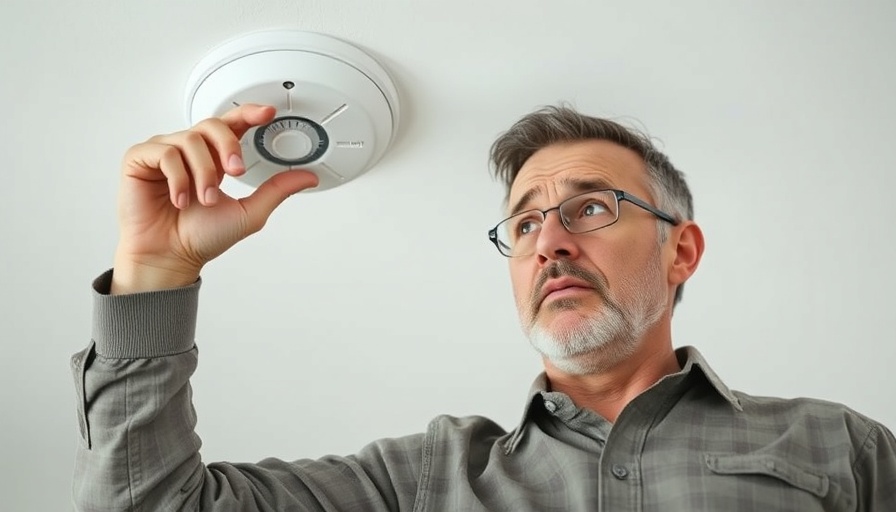
Understanding Your Smoke Alarm's Role
Smoke alarms are essential for home safety, designed to detect smoke and alert you quickly in case of a fire. However, what happens when they start blaring for no apparent reason? Talking to experts can shed light on common triggers for these nuisance alarms, allowing you to troubleshoot effectively.
What Triggers Smoke Alarms to Go Off?
It’s not uncommon for smoke detectors to sound without a fire present. Here are some of the leading culprits:
- Humidity and Steam: High humidity can confuse smoke alarms, making them think they're detecting smoke. Steam from cooking or hot showers carries moisture particles that may trigger the alarm. Low-level ventilation can help prevent this.
- Improper Placement: Smoke detectors should not be positioned too close to kitchens, bathrooms, or heating appliances. A device installed within 10 feet of a cooking area may alert from normal cooking operations, even burnt toast!
- Dust and Dirt Accumulation: Over time, dust and grime can build up inside your smoke alarm, leading to false alarms. Regularly cleaning your detector can help maintain its effectiveness.
- Insects: Yes, your smoke alarm can go off because of tiny creatures! Bugs can get trapped inside the device and disrupt its sensor mechanisms, prompting a false alarm.
The Science Behind Smoke Detectors
Most residential smoke alarms work using two primary types: ionization and photoelectric. Ionization detectors are sensitive to flaming fires and work by using electrical currents; photoelectric alarms are more adept at detecting smoldering fires through a light beam. Understanding which type you have can help manage expectations for alarm sensitivity.
Future Fire Safety Trends
Smoke detection technology is evolving. Smart smoke detectors can provide more reliable alerts and communicate with homeowners via smartphone notifications. They integrate seamlessly into home security systems and can even alert emergency services directly. Investing in such a device can dramatically reduce false alarms while enhancing your family's safety.
What You Can Do
If you're facing persistent false alarms, it's crucial to address the issue rather than silence the device. Ensure you follow these steps: 1. Relocate your alarms to avoid common triggers (steamy bathrooms, overactive kitchens). 2. Regularly clean your detectors to prevent dust accumulation. 3. Check for insects and dust inside the units. 4. Replace batteries annually, ideally synced with daylight savings.
Smoke alarms are your first line of defense in a fire - ensuring they work properly can save lives.
Don’t let nuisance alarms deter you from maintaining this vital safety feature. Be proactive about household safety and promote a fire-safe environment.
 Add Row
Add Row  Add Element
Add Element 


 Add Row
Add Row  Add
Add 

Write A Comment